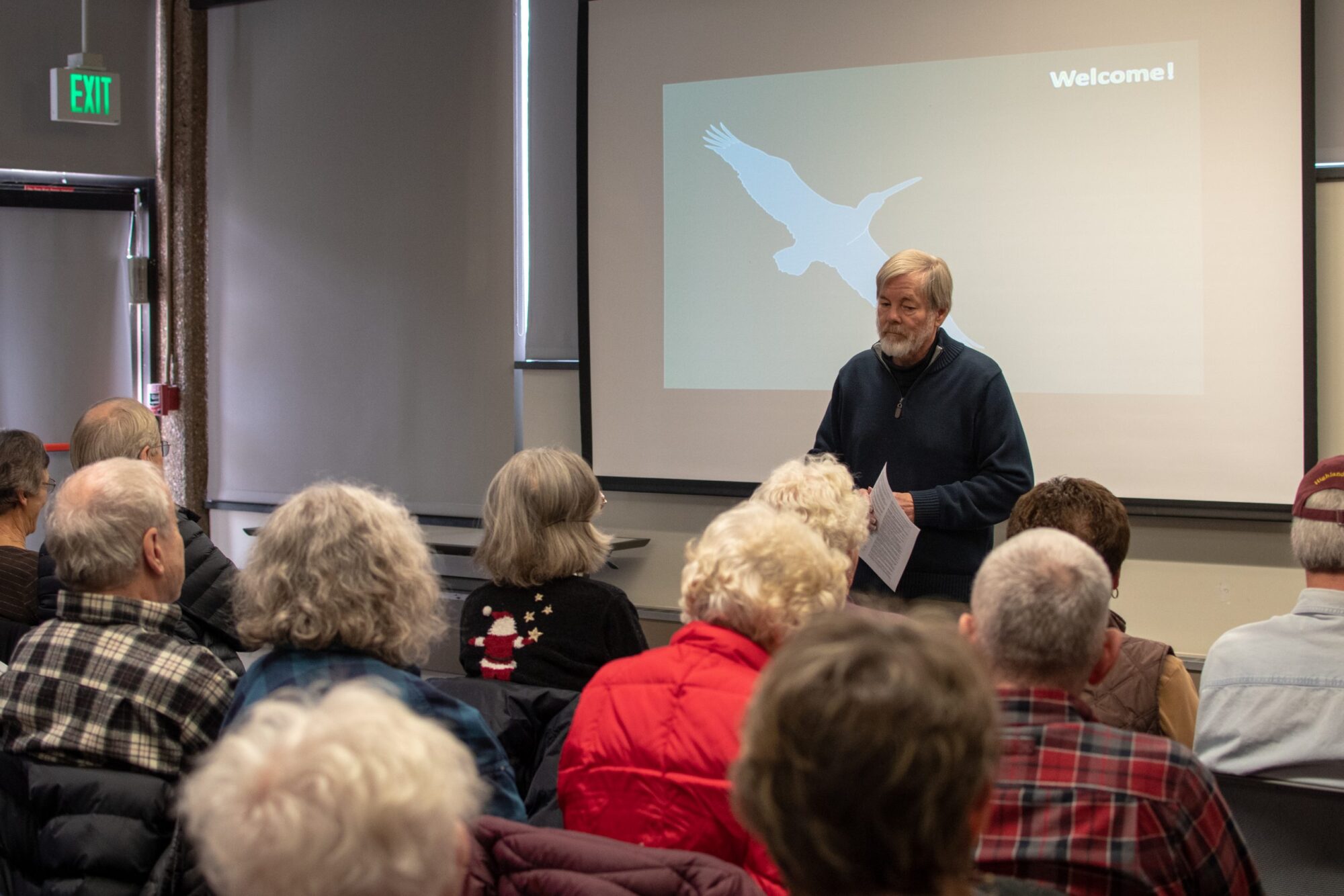Guest Blog by Christian Knoll
Kevin Cook is a name many Front Range residents are familiar with. His work as a nationally-syndicated nature writer has allowed him to cultivate a devout following of avid readers and nature enthusiasts alike.
In addition to his work as a writer, Cook is also an active event panelist for many adult learning programs housed across the Colorado Front Range. This year, in partnership with the Poudre River Public Library District, Cook will be presenting his latest series using personal anecdotes that are centered around the idea of becoming a naturalist.
Starting as Writer
Cook vividly recalls when he first started writing. He was in the second grade, and just finished reading Dr. Seuss’s “To Think I Saw It on Mulberry Street” and “If I Ran the Zoo.” Inspired by both the word play and colorful illustrations of Seuss, Cook found some paper and Crayons and started to make his own versions of these stories.
Cook’s love for writing persisted into his high school years. Ironically, despite his love for language and writing, Cook dreaded attending his English class. He found no interest in reading classic literature. Instead, Cook took his high school’s journalism class where he honed his skills as both a writer and editor.
Cook’s first breakthrough as a writer occurred when he a student at Western Colorado University (formally known as Western State College) in Gunnison, CO, where his first nature piece was syndicated by the town’s local newspaper.
Tips on Nature Writing
Cook has been working professionally as a nature writer for the better part of 37 years. Throughout that time, he has refined his process into his own unique style of writing. Nature writing tends to break a lot of formalities in respects to traditional journalism as there is more emphasis on writing based on subjective experiences rather than objective ones. Cook believes that first-person narrative works better for nature writing because it allows his readers to be more empathetic to his pieces.
“In the realm of nature writing, people really respond well to first-person writing, no third person descriptive stuff,” Cook said. “Writing in that narrative allows me to put the reader into a place and time that is more personal and descriptive compared to a more detached third-person point-of-view.”

Cook says inspiration and experimentation are other important factors that are needed to succeed in nature writing. Early in his career, Cook frequently read the works of famous nature writers like William Burroughs and Rachel Carson to replicate their unique style of writing. Through this process Cook found it easier to gauge what his audience liked and disliked.
“Sometimes very little writing actually got done,” Cook said jokingly. “Often I wrote a paragraph or two and stopped in the middle of my writing to read the works of other nature writers to capture the essence of what made them so great. Though, I think one of the most important parts is to make sure you are writing for yourself. If you’re not interested in your writing, chances are other won’t be as well. “
Work with Adult Learning Programs
Working as a freelance writer tends to be romanticized by the public, with many thinking that you work on your own schedule and write for whomever you choose. While there are some freedoms and benefits that come with being a freelance writer, there are plenty of trade offs to consider. Freelance writing is an often stressful and volatile profession, as there is not job security nor always a steady source of work.
However, there are way to circumvent these pressures. For Cook, he found that working with the adult learning programs housed across the Front Range could help alleviate some of these financial pressures.
“In 1990, I got approached by someone who was developing adult-oriented programming at the Fort Collins Public Library, now the Poudre River Public Library District. They received a grant that aimed to implement more of these learning programs. At that time, no one really knew what adult programming was. They knew what to do for kids, but not adults. Someone who was help coordinating these programs suggested my name. So, here we are today. But now I do these events in other locations like Loveland, Greeley, and Windsor,” Cook said.

Looking into 2020
Cook will continue to present his work for the Library District in 2020 by hosting monthly discussions every second Tuesday of the month at the Old Town Library from 1 pm to 2 pm. This year’s theme will explore Cook’s thoughts on what it takes to be a naturalist. The schedule of events are as follows:
• February 11 – Mary Poppins and the Bullfrogs
• March 10 – Death on a Mudflat
• April 14 – Close Encounters: Wildlife
• May 12 – Close Encounters: People
• June 9 – The Redwing That Will Fly Forever
• August 11 – Tracking Moose Through Colorado
• September 8 – Staying Busy When You Can’t Do Anything
• October 13 – An Elk Tour Gone Wrong
• November 10 – How Not to Run a Zoo
• December 8 – A Higher Cult of Mortals
For more information on these and other great adult programming, visit the Library District’s website.
About the author
Christian Knoll is a media specialist with a passion for creative storytelling.
His work with the Poudre River Public Library District and Colorado State University’s College of Health and Human Sciences has allowed him to photograph, film, and document the many community-based programs rooted across Colorado’s Front Range.
When he is not working, Christian can be found taking pictures, exploring the outdoors, or talking with friends over a fresh cup of coffee.
To see more of his work, visit his online portfolio.

